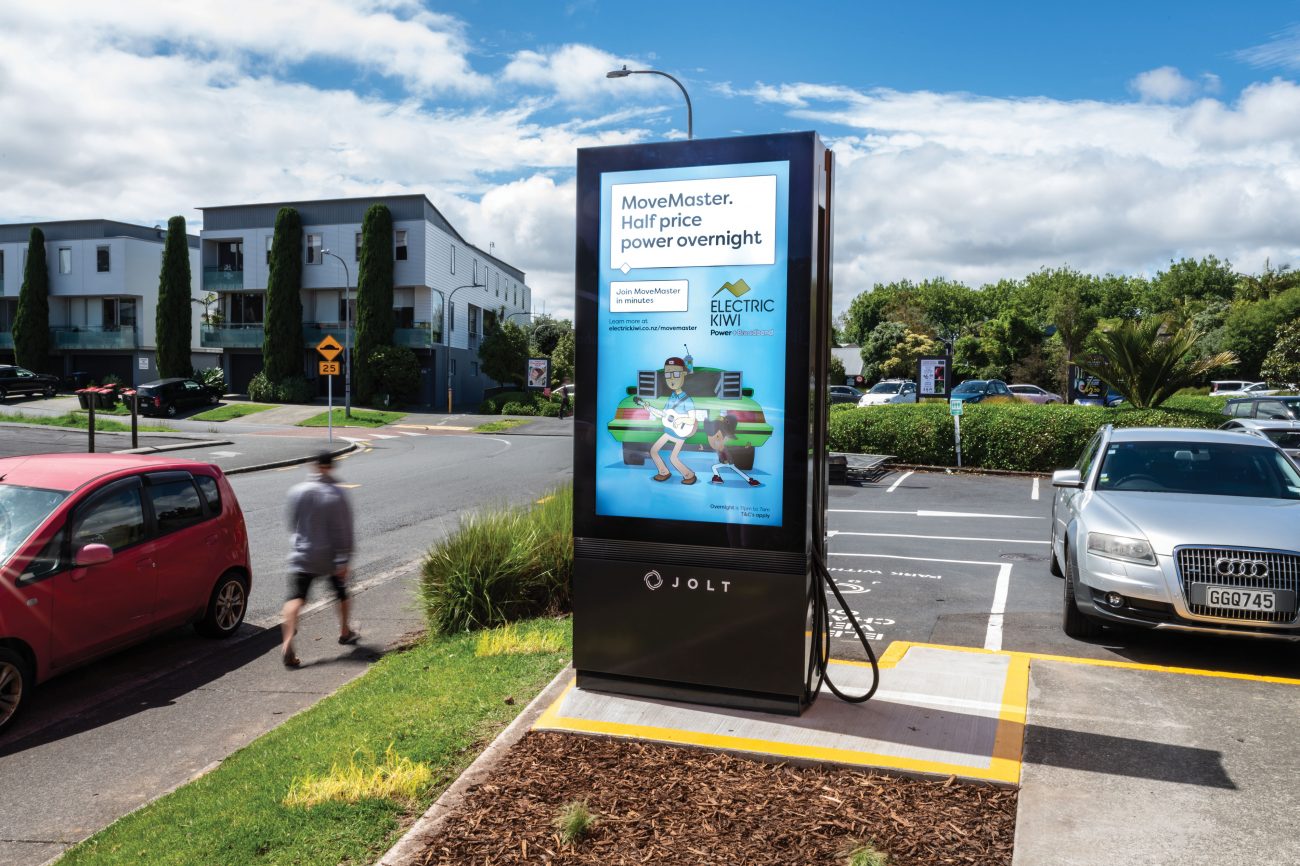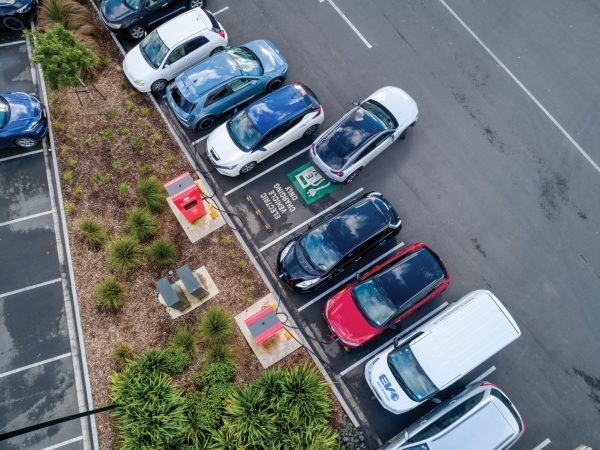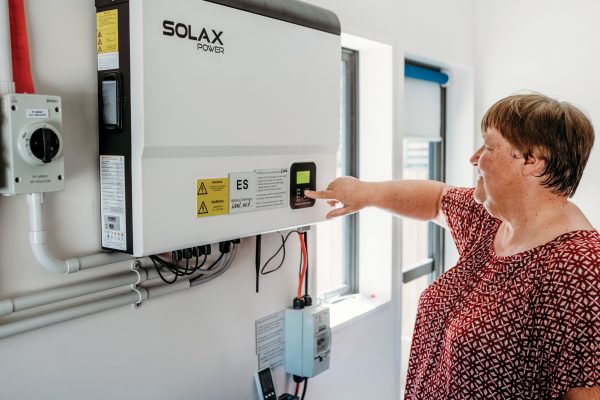Easy does it
Range anxiety, charging locations, higher power bills… There’s a lot to think about when buying an electric vehicle. But Electric Kiwi has a grand plan to help ease those concerns, writes Chris Schulz.

This time last year, my family was considering buying a new car. We spent our evenings poring over Excel spreadsheets and Google Maps. We spent hours browsing motoring forums, watching YouTube reviews and listening to car podcasts. On weekends, we’d go for lengthy test drives, debating the merits of each vehicle.
We did all this because we wanted to buy an electric vehicle (EV). Climate change was one reason, so was lowering our petrol costs. Before we made a decision on which vehicle to get, we had questions that needed answering. How long would charging an electric vehicle take at home? How about using a public charger? Are chargers available in the spots we visit the most? How much would we save on petrol, and how much more would we spend on power?
Buying an EV isn’t as simple as choosing a model and colour. There are many things to consider, including eligibility for the government’s rebate scheme, but things are getting easier by the day.
Electric Kiwi has plans to help ease the transition from a petrol-powered fleet of cars to electric-driven by offering energy services that fit with Kiwis’ expanding EV needs—whether that’s a plug-in hybrid like our Mitsubishi Outlander PHEV, or a full electric vehicle like a Tesla.
To do that, it’s partnering with companies like Jolt, which has unveiled the first of hundreds of free EV charging stations around the country; ChargeNet, New Zealand’s chief supplier of out-of-home charging stations; and smart EV charging company, Evnex which provides in-home charging, as well as offering a competitive time-of-use power plan called MoveMaster to facilitate cheap off-peak charging times.

Home on the range
Ed Harvey was in his last year of university when he decided to take on a final-year project: converting his beat-up 1997 Honda Accord into an electric vehicle. In 2012, people raised their eyebrows when he told them his car was powered by electricity. “It was one of only 200 electric vehicles in the country,” he says.
A few years later, Harvey decided to throw his hat into the EV ring. He began his company Evnex in 2014 with the aim of becoming the country’s biggest installer of smart EV chargers for home and small businesses. It’s taken time, he admits. “There are still some people who are not supportive of electrification. It’s definitely been a tough journey.”
But it’s quickly gathering pace and his early investment is starting to pay off. Evnex chargers allow users to charge their EVs from home, helping them make the most of cheaper electricity rates and employ the most renewable energy. Its team has installed 2500 chargers so far, making it the largest network of smart chargers in New Zealand.
Working with Evnex, Electric Kiwi is offering customers money off their smart charger, as well as facilitating an interest-free loan to pay off the remaining balance.
On the road again
Seven years ago, Steve and Dee West went on a road trip in their new EV. They quickly realised one important thing: New Zealand was going to need a network of quick, reliable charging stations to support the transition to electric vehicles.
“They realised no one was doing that,” says ChargeNet’s Bailey Gorst. So, they decided to do it themselves. The first ChargeNet public fast charger was installed when there were just 500 electric vehicles on the road. “We started well and truly before electric vehicles were a mainstream thing.”
Now ChargeNet prides itself on being the “nationwide charging network”, says Gorst, with 280 fast charge points covering the entire country. “From Cape Reinga all the way down to Bluff,” she says.
Users create an account and download an app. Charging costs are billed directly to a credit or debit card, but those who pair their ChargeNet account with their Electric Kiwi account will be billed via their regular power bills, meaning all their energy requirements will be conveniently in one place.

Screening process
You can’t see them yet, but soon you won’t be able to miss them. “We’re very slick and very visible,” says Chris Monaghan, the New Zealand manager of Jolt. “We’ll have screens on the roadside and chargers in the carpark.”
That is important. With much of New Zealand’s EV infrastructure hidden in car parks or on quiet roads that require an app to find them, seeing chargers everywhere “gives drivers confidence that there is infrastructure to support them making the transition to an electric vehicle.”
Starting with a site at Mitre 10 on Auckland’s Ponsonby Road, Jolt has plans to build 500 charging stations around the country over the next five years. They’ll be in destination areas like gyms, retail stores and swimming pools. “It’s a top-up opportunity,” says Monaghan.
You get seven kilowatts free (about 50km worth of charge) then pay 50 cents per kilowatt. Customers use an app and a QR code to begin charging, and the digital display board on Jolt’s chargers display advertising as a secondary income source.
Onwards and upwards
Despite the initial stress that buying an EV caused us, we have no regrets about it. We rarely use petrol during the week, and it’s only on super-busy weekends—or when we venture out of Auckland—that we have to turn to fossil fuels for transport.
Anything that makes that process easier, whether it’s wider access to chargers, cheaper and faster home charging, or free charging in the wild, has got to be a good thing.
- For more information, visit www.electrickiwi.co.nz/ev. A version of this story originally appeared on The Spinoff.

















